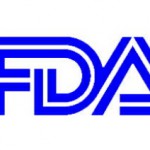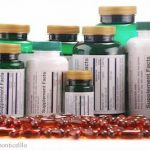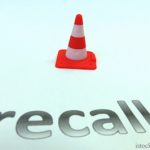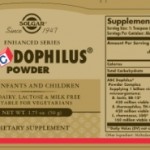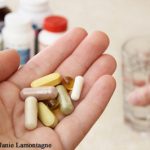The FDA announced yesterday that they have created the Office of Dietary Supplement Programs (ODSP), which elevates the program from its status as a division under the Office of Nutrition Labeling and Dietary Supplements. This change will "enhance the effectiveness of dietary supplement regulation by allowing ODSP to better compete for government resources and capabilities to regulate this rapidly expanding industry." The FDA does not regulate dietary supplements until there is a problem reported. The government takes action to remove supplements from the market that may be dangerous to consumers, and removes those that are falsely labeled or contain undeclared drugs. Other actions the government can take is enforcing good manufacturing practices regulation, especially when violating … [Read more...]
U.S. Senators Ask FDA To Investigate Supplement Manufacturers
U.S. Senators Dick Durbin (D-IL) and Richard Blumenthal (D-CT) are calling on the FDA to investigate manufacturers of dietary supplements who list "acacia rigidula" as an ingredient in their products. That phrase masks the addition of BMPEA, a dangerous synthetic amphetamine. A study released earlier this month in Analytical Chemistry found the drug in 11 out of 21 of over-the-counter dietary supplements. The supplements that contain BMPEA, or β-methylphenylethylamine, increased from 42.9% in 2012 to 52.4% in 2014. The Senators wrote, "for too long, dietary supplement manufacturers have either failed to list BMPEA on product labels or have listed the stimulant as a 'natural botanical' which the Food and Drug Administration's own scientists have disproved. Other countries and entities … [Read more...]
BMPEA, Ingredient in Dietary Supplements, Never Studied
A new study published in Analytical Chemistry has revealed that an ingredient common in many dietary supplements, weight loss supplements, and workout supplements has never been studied for safety and efficacy in human beings. The ingredient is called β-methylphenylethylamine (BMPEA). It is chemically almost identical to amphetamines, so it is called an amphetamine isomer. Canadian health officials pulled supplements that contain BMPEA from store shelves in December 2014. But in the U.S., the FDA has said that the stimulant "does not identify a specific safety concern at this time." Many scientists disagree. In the United States, the multi-billion-dollar supplement industry is not well regulated. In fact, what is in the dietary supplement you buy doesn't always match the ingredient … [Read more...]
Buying Supplements On the Internet Can be Risky
Dietary supplements are very popular in this country. However, Center for Science in the Public Interest is warning consumers that buying these products over the internet can be risky. First, many "testimonials" from "customers" are fake. The same "person" is usually used repeatedly by different companies, writing the same thing about different products. Second, free samples are offered if you give the company your credit card number. But the time frame for canceling the charge is too short for you to decide if the product works for you. These companies will hype scientific studies that "prove" their product is effective as advertised. But these studies are usually worthless, not adhering to the usual rigor applied to credible nutritional and medical studies. For instance, one … [Read more...]
Dietary Supplements Aren’t FDA Approved
For those trying to make good on New Year's resolutions to lose weight with the help of dietary supplements, the U.S. Food and Drug Administration (FDA) has some advice: beware. The FDA doesn’t evaluate supplements before they enter the market. Manufacturers are responsible for ensuring that their products are safe. Unfortunately, not all of them do. In fact, many of these products contain undeclared ingredients that pose health hazards for those with certain medical conditions and interfere with prescription medications. Others have been found to contain banned drugs such as sibutramine, an ingredient in an FDA-approved drug called Meridia, which was removed from the market in October 2010 after being linked to heart problems and strokes. The FDA has received dozens of reports … [Read more...]
After Deaths, FDA Mulls Action on Powdered Caffeine
After two young men died from taking powdered pure caffeine, the U.S. Food ad Drug Administration (FDA) issued a consumer advisory and is now mulling further action, according to Michael Landa, Director of FDA’s Center for Food Safety and Applied Nutrition. Eighteen-year-old, Logan James Stiner, a high school senior, athlete and prom king died days before his graduation in May after taking powdered pure caffeine. James Wade Sweatt, 24, a newly married, recent graduate of the University of Alabama at Birmingham, downloaded a conversion chart to try to calculate the proper dose but slipped into a coma after using powdered pure caffeine and later died. Both young men purchased the caffeine online where it is marketed like an energy-boosting dietary supplement rather than a stimulant. … [Read more...]
FDA Warns of Dietary Supplements with Live Yeast in Immunocompromised Persons
The FDA is warning those who are immunocompromised against taking dietary supplements that contain live bacteria or yeast and is warning healthcare providers about the use of these products in susceptible patients. A premature infant who was given ABC Dophilus Powder as part of an in-hospital treatment developed gastrointestinal mucormycosis caused by the mold Rhizopus oryzae and died. Rhizopus oryzae mold was found in an unopened container of the ABC Dophilus Powder. The FDA has sent a letter to healthcare providers around the country regarding this issue. That product was recalled on November 14, 2014 by the FDA for the mold. After the infant's death, FDA is telling healthcare providers that dietary supplements are not regulated as drugs by the FDA. They are not subject to FDA's … [Read more...]
Mixing Dietary Supplements and Meds Is a Danger
The Food and Drug Administration, in one of its Consumer Updates, reminds you that mixing medications and dietary supplements can endanger your heath. Robert Mozersky , a medical officer at the FDA said, "Some dietary supplements may increase the effect of your medication, and other dietary supplements may decrease it." Dietary supplements can change metabolism, absorption, and excretion of a medication and affect how it works. Mozerky added, "you may be getting either too much or too little of a medication you need." One example of a supplement that interacts with prescription medications is St. John's Wort. That supplement, which is often taken for depression, can make meds for HIV/AIDS, heart disease, depression, birth control pills, and treatments for organ transplants less … [Read more...]
Green Coffee Bean Supplement Maker Settles FTC Charges
The Federal Trade Commission has settled with Applied Food Sciences, Inc. on charges that it used the results of a flawed study to market baseless weight-loss claims about its green coffee extract. The FTC stated that the study was "so hopelessly flawed that no reliable conclusions could be drawn from it." The flawed study was promoted on the Dr. Oz Show. The settlement requires the company to pay $3.5 million and to have scientific substantiation for any future weight-loss claims it makes, including at least "two adequate and well-controlled human clinical trials." The company made the false claims to retailers, who repeated the claims to consumers. Jessica Rich, Director of the FTC's Bureau of Consumer Protection said in a statement, "Applied Food Sciences knew or should have known … [Read more...]
FDA: Dietary Supplements Don’t Treat Concussions
Despite claims by some manufacturers, dietary supplements do not treat concussions, the U.S. Food and Drug Administration (FDA) wants consumers to know. Especially, parents of kids involved in football, soccer and other fall sports. A concussion is a traumatic brain injuries (TBI) caused by a blow to the head, or by violent shaking of the head or upper body. TBIs are serious medical conditions that require proper diagnosis, treatment, and monitoring by a health care professional, says the FDA, which is warning consumers to avoid dietary supplements that claim to prevent, treat, or more quickly heal concussions. "We're very concerned that false assurances of faster recovery will convince athletes of all ages, coaches and even parents that someone suffering from a concussion is ready … [Read more...]
